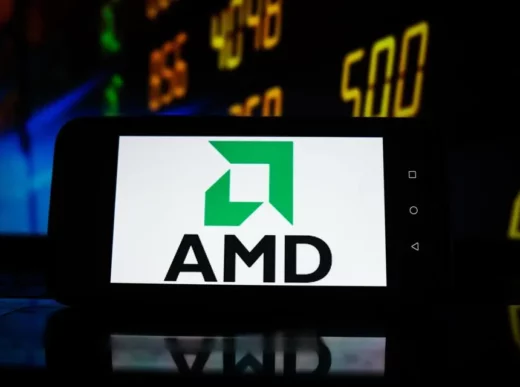The investing landscape is fraught with clichés, much like the classic mistakes we’re often warned about. Just as Vizzini from “The Princess Bride” shared sage advice, investors have their own guidelines to navigate the market. However, separating fact from fiction is crucial, especially when it comes to the trajectory of stocks. Roku (ROKU0.47%) has had its share of ups and downs, but understanding the true story behind the numbers is essential for savvy investors. This article delves into Roku’s past, present, and potential future to determine whether it’s a buy, sell, or hold.

A Tale of Two Charts
To illustrate Roku’s journey, consider the following analogy. Just as the stock market has its clichés, the realm of stocks often presents contrasting stories. In the case of Roku, its stock performance has taken a roller-coaster ride, reminiscent of a well-known stock from the past. The graph showcases Sirius XM Holdings (SIRI 0.42%) over a seven-year period during the early 2000s. During this period, Sirius Satellite Radio, as it was known then, surged from $4 to $65 per share, only to plummet below $1 per share three years later. Despite a brief recovery to $3 per share, Sirius’ stock remained 95% below its peak.

Drawing parallels to Sirius is relevant because Roku’s trajectory in recent years mirrors this pattern, albeit with variations. Roku’s shares soared from $55 to $480 within three years, driven by the boom in video-streaming services, exacerbated by the COVID-19 lockdown. However, the momentum was short-lived as Roku’s stock price dipped below $39 per share by the end of 2022. The streaming service industry, once deemed invincible, exhibited vulnerabilities, affecting even stalwarts like Netflix and Disney. Additionally, Roku’s ad sales faced headwinds due to advertising budget constraints amid inflation.
Beyond Surface Similarities
Although Roku’s chart may appear reminiscent of Sirius’, delving deeper reveals stark contrasts in circumstances. While both charts share visual similarities, they originate from vastly different contexts. Sirius’ surge was driven by speculative interest in an untested business concept. The situation was unique, considering the early days of satellite radio.
Roku, on the other hand, boasts a firmly established business. Even during its speculative stock surge, Roku had substantial revenue, active user accounts, and a market presence:
- Roku’s trailing sales reached $2.3 billion in 2021 and $3.2 billion today.
- In the summer of 2021, Roku had 56.4 million active user accounts, which has grown to 73.5 million.
- Unlike Sirius during its speculative phase, Roku was already an established market leader in North America, with global expansion plans.
Moreover, Roku’s growth is primarily driven by software sales, technology licenses, and advertising agreements. In contrast, Sirius would need new satellites to expand into new markets. Furthermore, Roku’s balance sheet is robust, with no long-term debt and $1.8 billion in cash equivalents. Sirius, in contrast, accumulated $9.4 billion in long-term debt and diluted its stock through multiple sales.
The Promise of Roku’s Future
The charts, though similar, tell vastly different stories. While Sirius struggled to regain its former glory, Roku’s potential remains compelling. Roku is poised to become a media powerhouse on a global scale. The company’s solid financial foundation, absence of long-term debt, and expanding market presence indicate its promising future:
- Roku is positioned to tap into the growing market for streaming media platforms worldwide.
- Unlike Sirius, Roku’s growth is not tied to speculative ventures, making its growth prospects more sustainable.
- The company’s robust balance sheet and strategic growth initiatives set it on a trajectory for sustainable expansion.
Conclusion
In conclusion, the analysis goes beyond stock charts to uncover the underlying truth. While Roku’s chart may bear visual similarities to a past stock, the context and circumstances are vastly different. Roku’s strong financial standing, established market presence, and sustainable growth strategy set it apart from speculative counterparts like Sirius. As a result, the recommendation for Roku stems from its enduring business growth and global market penetration, not merely chart patterns. Amidst the “buy, sell, or hold” debate, Roku’s potential as an investment with substantial growth prospects remains undeniable.















